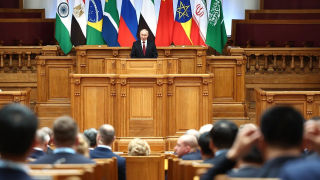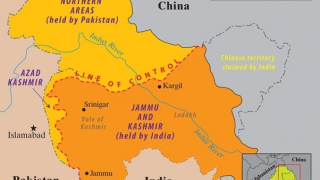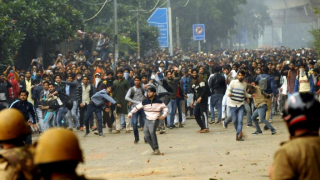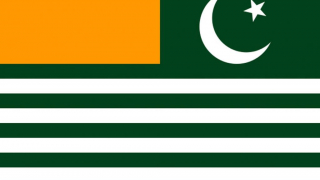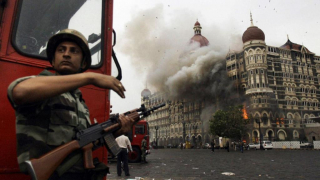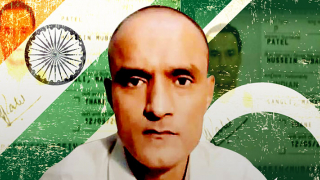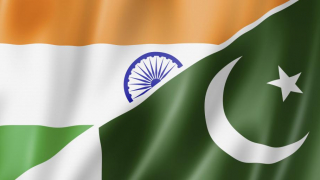Rise of Extremist Tendency in Modi’s India
Sohan Roy, a UAE based prominent businessman in his native Malyalam language poem titled ‘Viddi Janman’ (Fool’s life) narrated that religion had made people blind as they were ignoring coronavirus restrictions in the name of God. Though the poem did not name any community, images accompanying it in the background showed a preacher leading a crowd of blindfolded men wearing kurta pyjama and skull caps. The illustration alludes to members of Tablighi Jamaat, who have been widely propagated in Indian media as the prime suspects among potential coronavirus carriers. Earlier social media in Arab countries was on fire against Islamophobic tweets by some gulf-based non-resident Indians. The matter was sparked more by an Indian working in Dubai who targeted Muslims and blaming Tablighi Jamaat for spreading the pandemic.
After receiving sever backlash, Rao removed the poem from his Facebook, Instagram and Twitter accounts. However, the poem went viral within days of being posted on the internet. Roy said the images used with the poem was a mistake on part of his graphic designer as if he was innocent enough not to have understood the underlined message of hate speech and Islamophobia conveyed through his verses and visual graphics. It is obvious that that this was either an intentional attempt or cheap way to grabbing attention for which lawful action against Mr Roy should be initiated both by UAE as well as Indian Government. Although after sever criticism Rao is sorry to have hurt religious sentiments of Muslims dragging a controversy when the Indian Muslims are already facing hate crimes by the Hindu majority and they are offended by one or the other way not only by Hindu racists but also by security forces.
Roy’s deliberate endeavor is liable to legal proceedings under the India laws but it seems that the anti-Muslim stance of current regime in India will hardly book Mr Roy under law. It is pertinent to mention here that Article 19 of Indian Constitution gives all citizens the right to freedom of speech and expression subject to “reasonable restrictions” for preserving inter alia public order, decency or morality. According to Section 153A of the Indian penal code hatred or ill-will between different religious groups which disturbs or is likely to disturb the public tranquility shall be punished with imprisonment which may extend to three years, or with fine or with both. Evidently, the Roy’s rhetoric carries no meaning other than the expression of hatred for Muslims and in circumstances in which such communication is likely to provoke violence.
Indian media is now highlighting the news of how the businessman has apologized for the “unintentionally hurting religious sentiments” through his poem, which spewed venom about Muslims. It is deplorable that negative stereotypes about Muslims are framing them as inferior and less worthy of respect, thus expressing this notion through propaganda filled with hate. The reason why negative stereotypes and Islamophobia occur in India is because of the system of oppression- discriminatory structure, institutions, and norms deeply embedded in the fabric of the society, or when group identity is affirmed, through a distinction between “us” and “them”. Stereotypes are the ways of reinforcing an identity or an “ism” to give higher identity to “our” group or “their”. The BJP led government in India has stretched a clear line between the Hindus and Non-Hindus and marginalized the minorities particularly its largest Muslim minority.
The BJP, a political wing of the Hindu racist RSS has stubbornness to stick to a particular ideology of Hindutva and not allow any other one to co-exist or to out-rightly refuse any alternate thought for the supremacy and dominance of Hindus. Intolerance and bigotry, which echoes its parochialism through hate-speech, are the hallmark of BJP.
It may be noted that a hate speech could also be wrapped in “love”- love for one’s country, community, religion, or group identity. This love is so confined to one’s own, and develops into fanaticism that it denies any other contrary free thought which is the order in new India under BJP rule. The BJP is openly advocating a sense of superiority over other non-Hindu communities. One should remember that his feeling of superiority or having an upper-hand over another leads to the brewing of haughtiness. The Nazis, and their belief of the Nordic Aryan blood being the supreme, led to hateful terror upon others and BJP follows the same ideology.
The critics of restricting freedom of speech often argue that it would amount to taking away the liberty of an individual. However, under the guise of exercising intrinsic rights, many perpetuate the crime of hate speech, giving rise to an air of distrust, and terror as it has become a norm in India.
Islamophobia has been transposed onto the coronavirus issues, since March 28, tweets with the hashtag #CoronaJihad have appeared nearly 300,000 times and potentially seen by 165 million people on Twitter. Hate speech is the starting point in the chain of marginalizing and putting a particular class of persons under fear of threat. If it is protected in the name of freedom of speech and expression then it will lead to violation of principles on which a free and democratic country is built on. The rising polarization in Indian society will not only make India suffer but also endanger the regional peace and stability. Irrespective of menace at our threshold the epidemic of coronavirus calls upon humanity and peaceful co-existence shunning aside all differences and hatred. In these hours of global crisis spanning over many months collective win is a better option for humanity than a collective fall. The UN and global leaders should discourage hate speech trolls in India through viable measures.


